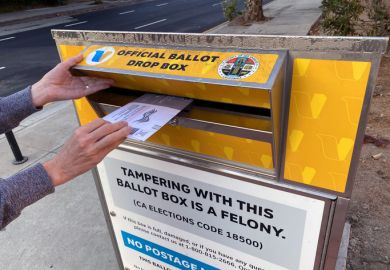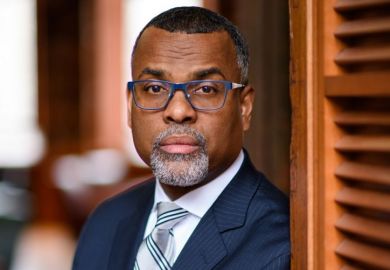The University of California, Los Angeles is getting pushback for seeking the financial benefits of federal recognition as a Hispanic-serving institution (HSI) while boasting a multibillion-dollar endowment.
UCLA is nearing the 25 per cent Hispanic enrolment threshold that is key to federal programmes that offer more than $200 million (£140 million) to several hundred eligible institutions, and has set a goal of 2025 for joining that club.
Success would qualify UCLA “for a range of federal grants that would bolster our educational programmes and benefit Latinx communities and all others on our campus”, UCLA’s chancellor, Gene Block, told his campus in December.
But a prominent alumnus, Roy Wilson, the president of Wayne State University, has begun criticising UCLA, saying the designation should be reserved for the neediest institutions serving the neediest students.
Dr Wilson disapprovingly noted UCLA’s strategy to his fellow members of the advisory committee to the National Institutes of Health as the panel considered a new NIH initiative to confront anti-black inequality.
Asked afterwards to elaborate, Dr Wilson said the federal designation of a Hispanic-serving institution was meant “to level the playing field” for those campuses that are persistently and critically underfunded.
“It’s terrific that UCLA wants to serve more Hispanic students,” said Dr Wilson, who holds a master’s degree in epidemiology from UCLA. “However, I do not believe that a well-resourced institution like UCLA should strive to obtain official HSI designation to have access to more federal funds.”
A UCLA spokesman explained the university’s position by citing sections of Dr Block’s community message in which the chancellor noted that Hispanics represented the largest ethnic group in California.
“As a public institution,” Professor Block said at the time, “UCLA has a heightened obligation to ensure that we are doing all we can to make sure this is a campus that truly welcomes members of our Latinx communities, honours their intellectual and cultural contributions and supports their success.”
Outside experts agreed that UCLA, with a $4 billion endowment, was acting within its rights – and that Dr Wilson was justified in raising concern.
Part of Dr Wilson’s concern may be alleviated, said Andrés Castro Samayoa, an assistant professor of higher education at Boston College, by the existence of additional federal hurdles that may prevent UCLA from winning the designation, including the need for at least half of the Hispanic students to be from low-income backgrounds.
Also, the leading federal grant under the eligibility designation only amounts to about $100,000 a year and is won by only a fraction of the institutions that apply, Dr Samayoa said.
It does seem a small amount of money for UCLA to be pursuing, said Marybeth Gasman, a professor of educational psychology at Rutgers University. As such, Professor Gasman said, UCLA may want to obtain the designation for motivational purposes but not seek any federal funding from it.
The situation with UCLA also may point out the need for the federal government to rework its eligibility requirements, as well as provide more overall resources for minority-serving institutions, she said.
Register to continue
Why register?
- Registration is free and only takes a moment
- Once registered, you can read 3 articles a month
- Sign up for our newsletter
Subscribe
Or subscribe for unlimited access to:
- Unlimited access to news, views, insights & reviews
- Digital editions
- Digital access to THE’s university and college rankings analysis
Already registered or a current subscriber?








